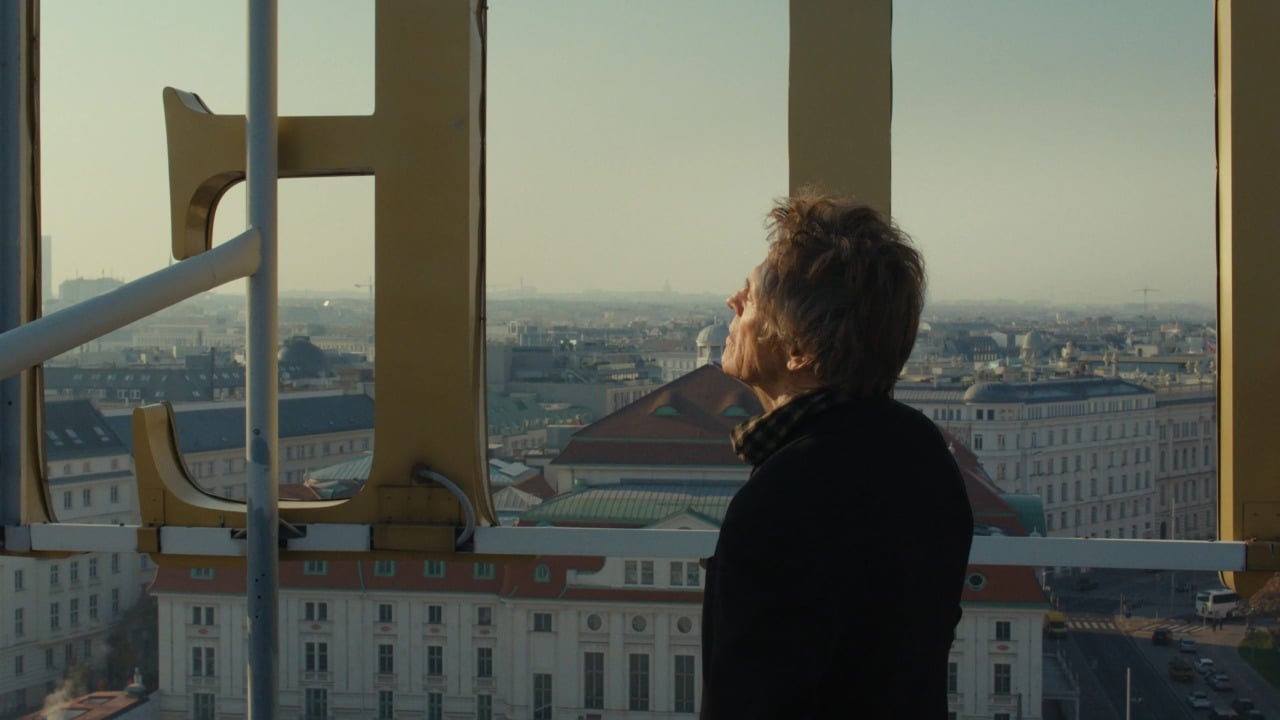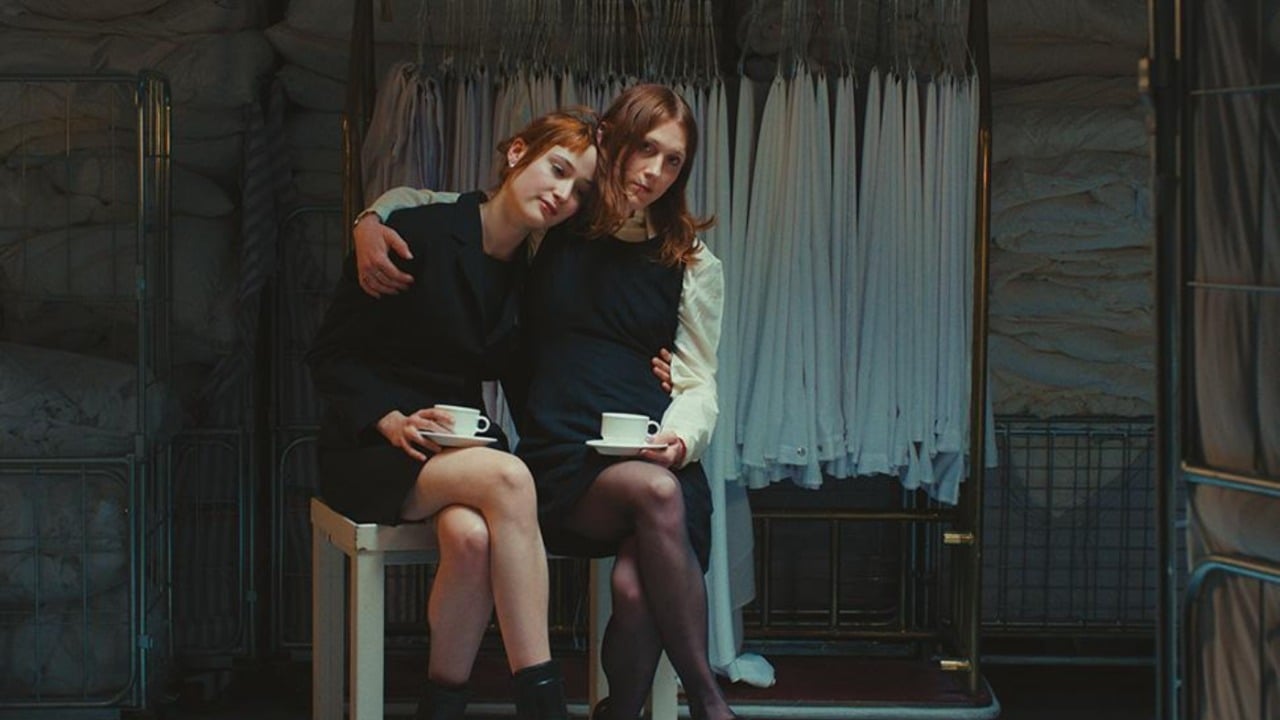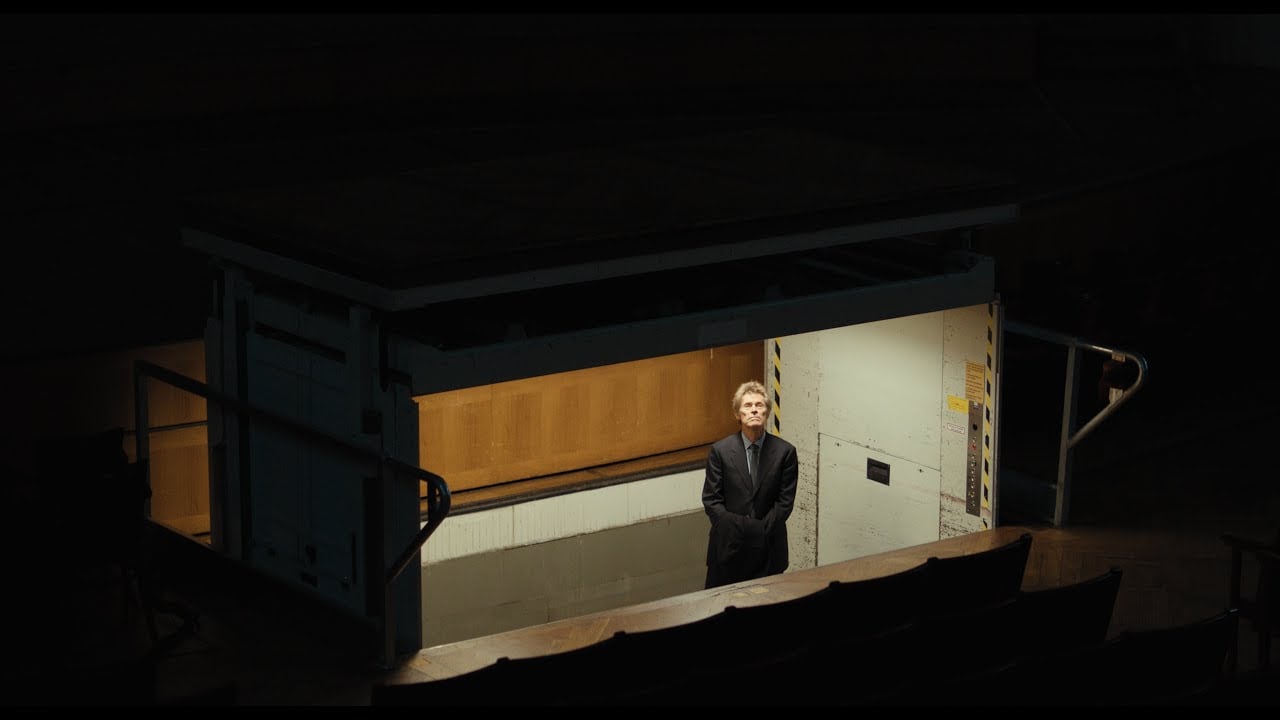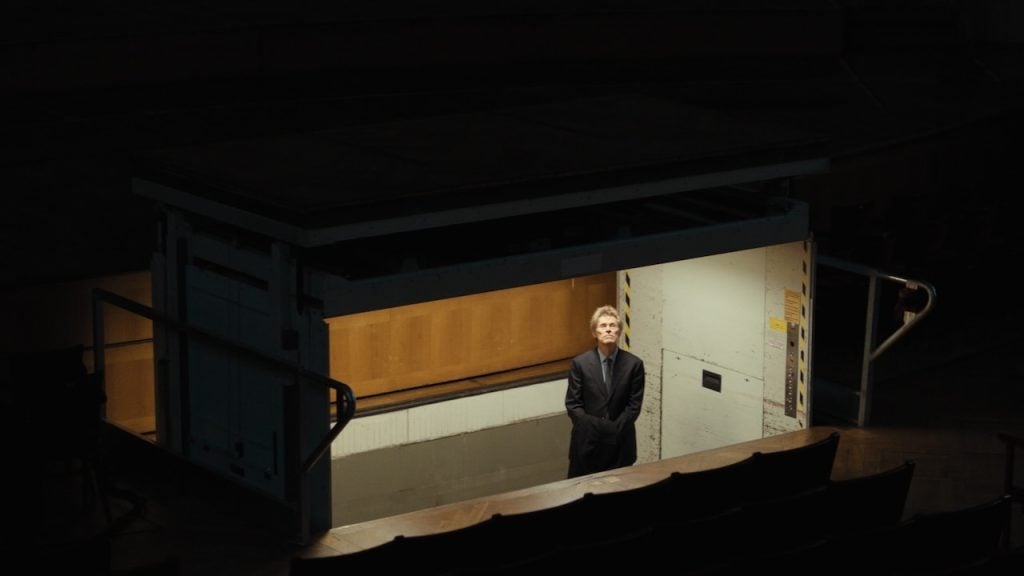Baking a delicious soufflé is as tricky as making a good film. You need endless patience, a meticulous technique, and of course, the right elements. Even then, there’s no guarantee that it will have the depth you’re longing for. A well-made soufflé is a tasty testament to the cook’s craftsmanship, and a finely executed movie is a shining example of the director’s artistic vision. Sadly, The Souffleur, the latest movie by filmmaker Gastón Solnicki (Introduzione all’oscuro) doesn’t fully rise to its culinary namesake’s height. Yes, there are compelling ingredients and expertise, but the necessary heat is missing to make it a delicious delight.
It’s 1960s Vienna, and what used to be a beacon of progress and innovation has now become an empty shell of a once-grand hotel. The chandeliers still dazzle, but the Intercontinental Hotel, in the heart of the city, doesn’t shine anymore. While the hotel receives lukewarm reviews from guests, it’s the hotel manager Lucius’s (Willem Dafoe) biggest love, workplace, and home. However, when the new Argentinian owner (played by Solnicki himself), who wants to put his own contemporary twist on it, comes into play, it seems that even heritage and history are no match for global capitalism and modernity.
Yet Lucius, undeterred, tries once more to turn the hotel and its skating rink into a place humming with life and international travellers. The only things that are humming these days are the rusty vents and, sometimes, the manager himself. Will the Intercontinental rise again like its soufflés it was once famous for, or fall flat?

We don’t want to spoil what happens to the hotel, but the movie itself sadly doesn’t rise to the occasion. As with many businesses, the hotel’s past was anything but straightforward. The same can be said of this story itself, as Solnicki breaks free from a linear storyline and a traditional plot. He freely lets Dafoe (Inside) do his thing, which in this case means giving a mesmerising performance as a broken man who doesn’t want to go down without a fight. He leads this film not only with wonderful on-screen acting, but also with a mournful voice-over that certainly hits the right emotional notes.
Dafoe grounds the film with immense control, dry wit, and gentle eccentric charm, turning the story into one we can all relate to, especially if there’s something you’re incredibly passionate about. As for Lucius, this hotel is his lifework and passion, and seeing his prized possession being taken away from him is heartbreaking. His weary face and deep-set eyes touchingly convey that total desperation of a slightly delusional man who wants to save his precious hotel, leading to both sombre and comedic moments.
However, it all unfolds too slowly to stay compelling. That’s because Solnicki is more interested in creating a delicate and melancholy atmosphere than a coherent story that drives the movie forward. The archival, black-and-white footage of the vibrant city and the painting-like scenes during which we get to know the Intercontinental and its few guests are wonderful to look at. You observe how people go on with their daily lives. They enter the shot, introduce themselves, and then disappear again, all with the same coldness and monotony.

Those fleeting scenes often feel too disconnected from each other to stay truly Intriguing and enjoyable. Apart from breaking the fourth wall and giving us a glimpse into their favourite drinks, the supporting characters have nothing to offer. Even the new hotel owner never becomes a fully fleshed-out character. You would think that Solnicki, as a director and co-writer (alongside Julia Niemann), would give himself much more to work with than this. A more coherent motive and/or personality would undoubtedly have helped make the characters feel more alive and important.
Despite the runtime only being a mere 78 minutes, the feature feels excessively long. Yes, the gentle moments and the lead’s vulnerability highlight the fragile situation the hotel finds itself in. Still, even cinematographer Rui Poças’ (Tabu) quiet, melancholic work and Dafoe’s magnetic acting can’t prevent the pieces from falling apart and the movie from crumbling down.
True to a soufflé itself, this movie certainly is a delicate work that looks beautiful and shows the artistry of both the people behind and in front of the camera. When you take a bite out of the work Solnicki created, you certainly feel wit, melancholy, and a whole array of emotions, but those feelings don’t leave a lingering impact. That’s because the heat and power that this film needs just isn’t there. While the desert itself is a remarkable display of stability, this film offers no stability or constancy. Instead, it feels like an undercooked dish with no real depth, flavour, or consistency, and it’s definitely served ice-cold rather than piping hot.
The Souffleur held its U.K. premiere at the BFI London Film Festival 2025.
Director: Gastón Solnicki
Writers: Gastón Solnicki, Julia Niemann
Rated: NR
Runtime: 78m

While the desert itself is a remarkable display of stability, this film offers no stability or constancy. Instead, it feels like an undercooked dish with no real depth, flavour, or consistency, and it's definitely served ice-cold rather than piping hot.
-
GVN Rating 5
-
User Ratings (0 Votes)
0







